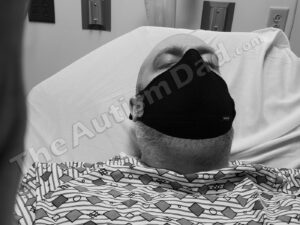 6 Ways to Detect Early Signs of Autism (via http://technewszone.com)
6 Ways to Detect Early Signs of Autism (via http://technewszone.com)
Some people say that autism is becoming more prevalent in today’s society, and others are saying that it is just easier to find these days. Whatever the case may be, these six wayscan help you to detect early signs of autism. Regular Doctor…


When I was little, I had very long hair — it wasn’t cut at all until I was eight — and Mom had a terrible time washing or brushing it. It was incredibly painful for me. Now, getting your hair brushed by someone else almost always results in more yanks and snags than brushing your hair yourself, but I reacted very badly to it, screaming and fighting. I used to try to put off brushing and washing as long as possible (which, of course, made it even worse when it was finally done, since it had a longer time to get tangled). Mom always thought it was me being a drama queen or something, but now I wonder if it was sensory issues. The reason we finally cut my hair was because neither of us could stand the daily hair care drama anymore. (Of course, the fact that at eight years old my mother was still washing and brushing my hair was kind of unusual in and of itself.)
Also, according to my parents, I didn’t speak a word until I was nineteen months old — and according to Parenting.com, most babies speak their first word between 11 and 14 months. My first word was very unusual too, not “mama” or “dada” or anything like that. We were at the zoo, I guess, and I said “giraffe.”
I also exhibited echoalia as a child: not repeating other people’s words, but my own. I’d be talking to someone, say something, then repeat it under my breath. The only person who ever commented on this was a little girl I became friends with at the beach. She asked me why I did it; I didn’t know. If she noticed it, surely other people must have noticed too, but my parents, typically did nothing about it. I was about seven or eight years old when I had the encounter with that girl who asked why I repeated everything I said. I’m not sure when I stopped doing it.
I’m going to add a little specificity to the whole “lack of interaction” thing. What you’re really looking for is the child’s non verbal communication. Does your baby respond to facial expressions? Do they wave, clap or imitate other social gestures? Do they make and sustain eye contact? Do they vocalise and babble like other kids their age?
Unusual sensory responses may not always be negative. Babies I currently see who I suspect have autism are most likely to show sensory differences in excitement – tensing of arms and legs when excited, stereotyped movements similar to flapping. They may also be visually fixated or overly excited by visual stimuli.